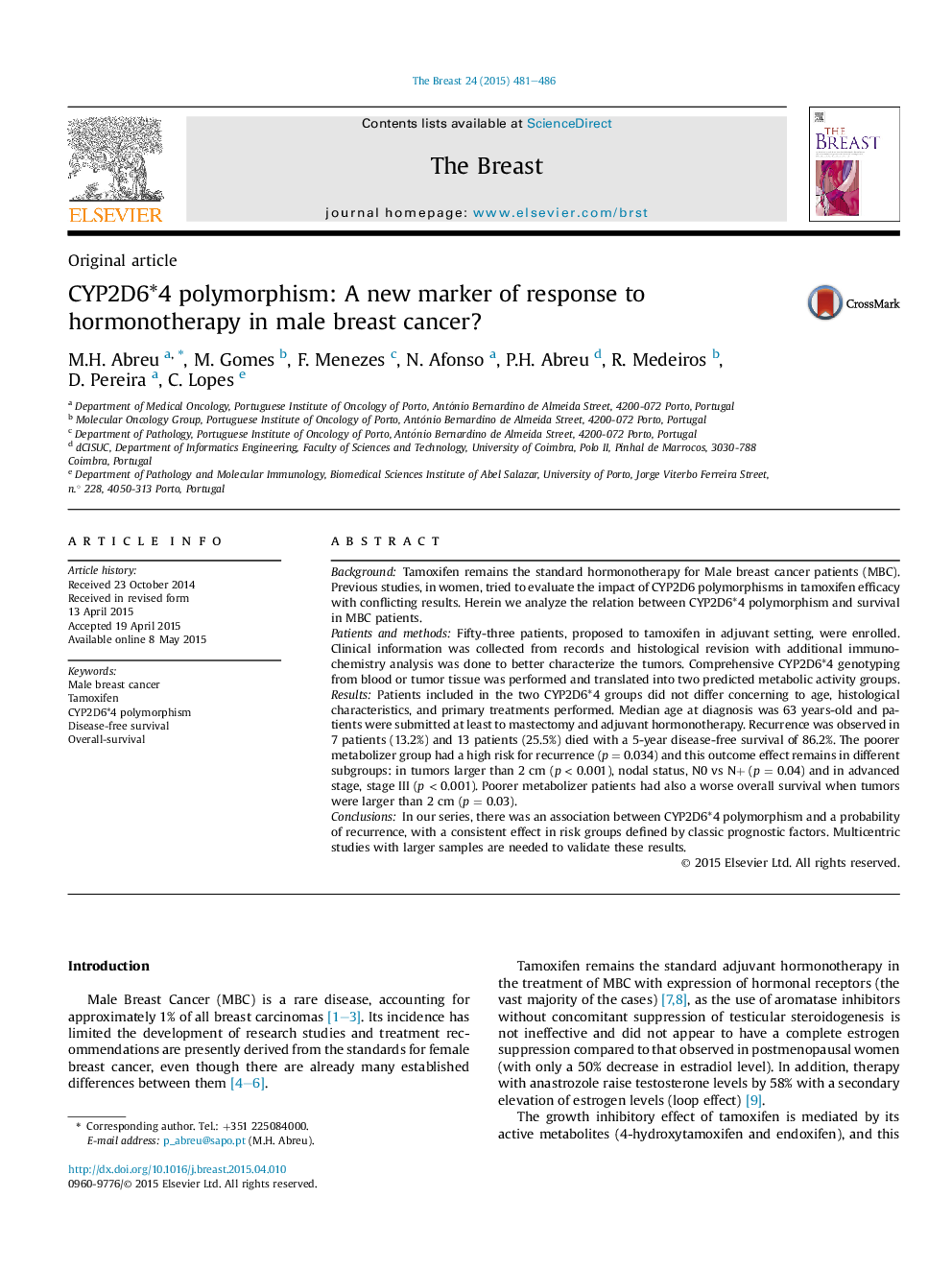| کد مقاله | کد نشریه | سال انتشار | مقاله انگلیسی | نسخه تمام متن |
|---|---|---|---|---|
| 6169624 | 1251178 | 2015 | 6 صفحه PDF | دانلود رایگان |

- First study that addresses the role of CYP2D6*4 polymorphism in the outcome of MBC patients treated with tamoxifen.
- The “poorer tamoxifen metabolizers” have a high risk for recurrence.
- The effect in recurrence remains in high risk subgroups: tumors >2 cm, in N+ vs N0 and in advanced stage (stage III).
- The “poorer tamoxifen metabolizers” have also a worse overall survival when tumors >2 cm.
BackgroundTamoxifen remains the standard hormonotherapy for Male breast cancer patients (MBC). Previous studies, in women, tried to evaluate the impact of CYP2D6 polymorphisms in tamoxifen efficacy with conflicting results. Herein we analyze the relation between CYP2D6*4 polymorphism and survival in MBC patients.Patients and methodsFifty-three patients, proposed to tamoxifen in adjuvant setting, were enrolled. Clinical information was collected from records and histological revision with additional immunochemistry analysis was done to better characterize the tumors. Comprehensive CYP2D6*4 genotyping from blood or tumor tissue was performed and translated into two predicted metabolic activity groups.ResultsPatients included in the two CYP2D6*4 groups did not differ concerning to age, histological characteristics, and primary treatments performed. Median age at diagnosis was 63 years-old and patients were submitted at least to mastectomy and adjuvant hormonotherapy. Recurrence was observed in 7 patients (13.2%) and 13 patients (25.5%) died with a 5-year disease-free survival of 86.2%. The poorer metabolizer group had a high risk for recurrence (p = 0.034) and this outcome effect remains in different subgroups: in tumors larger than 2 cm (p < 0.001), nodal status, N0 vs N+ (p = 0.04) and in advanced stage, stage III (p < 0.001). Poorer metabolizer patients had also a worse overall survival when tumors were larger than 2 cm (p = 0.03).ConclusionsIn our series, there was an association between CYP2D6*4 polymorphism and a probability of recurrence, with a consistent effect in risk groups defined by classic prognostic factors. Multicentric studies with larger samples are needed to validate these results.
Journal: The Breast - Volume 24, Issue 4, August 2015, Pages 481-486